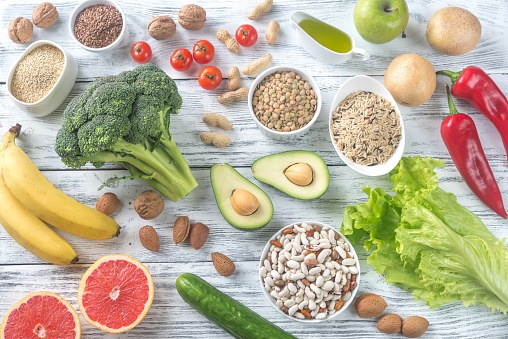
Focusing on consuming healthy food is more important than the specific heart-healthy food regimen one pursues, results from a new study suggest.
The research team, working out of Beth Israel Deaconess Medical Center (BIDMC) and publishing in the International Journal of Cardiology, wanted to focus on the optimal macronutrient profile for the prevention of subclinical cardiovascular injury and inflammation. The study sample included 164 adults from the Optimal MacroNutrient Intake Trial to Prevent Heart Disease (OmniHeart) with high blood pressure or hypertension (systolic blood pressure 120-159 mm Hg or diastolic blood pressure 80-99 mm Hg). Patients were fed one of three diets (emphasizing carbohydrates, protein, or unsaturated fats) for six weeks, with weight held constant. The researchers collected fasting serum at baseline with individual participant diets, during the intervention diet feeding periods, and after each intervention diet feeding period. High-sensitivity cardiac troponin (hs-cTnl) and high-sensitivity C-reactive protein (hs-CRP) were mesured in stored specimens, according to the study. The average age of the study participants was 53.6 years. Over half (55%) were African American, and 45% were women.
Baseline median hs-cTnl was 3.3 ng/L and media hs-CRP was 2.2 mg/L. All three diets reduced hs-cTnl (-8.6% with carbohydrate, -10.8% with protein, and -9.4% with unsaturated fat), with hs-CRP similarly changed by -13.9%. No between-diet differences were reported in hs-cTnl or hs-CRP reductions.
“It’s possible that macronutrients matter less than simply eating healthy foods,” said corresponding author Stephen Juraschek, MD, PhD, an assistant professor of medicine at BIDMC and Harvard Medical School, in a press release. “Our findings support flexibility in food selection for people attempting to eat a healthier diet and should make it easier. With the average American eating fewer than two servings of fruit and vegetables a day, the typical American diet is quite different from any of these diets, which all included at least four to six servings of fruits and vegetables a day.”
DASH like diets regardless of #macronutrients reduce subclinical #CVD in the #OMNIHEART trial! Thanks to Lara and team for making this paper possible! @LarryAppel@ermiller14 @StevenSchulman7 @BIDMChealth @JHUWelchCenterhttps://t.co/pgro6o4GPF
— Stephen Juraschek MD, PhD, FAHA, AHSCP-CHS (@spjuraschek) August 22, 2019
Excited to share our findings on healthful #diet and high sensitivity #troponins @BIDMChealth @UMass @HopkinsMedNewshttps://t.co/324V6pUQ1g
— Stephen Juraschek MD, PhD, FAHA, AHSCP-CHS (@spjuraschek) August 6, 2019







 © 2025 Mashup Media, LLC, a Formedics Property. All Rights Reserved.
© 2025 Mashup Media, LLC, a Formedics Property. All Rights Reserved.